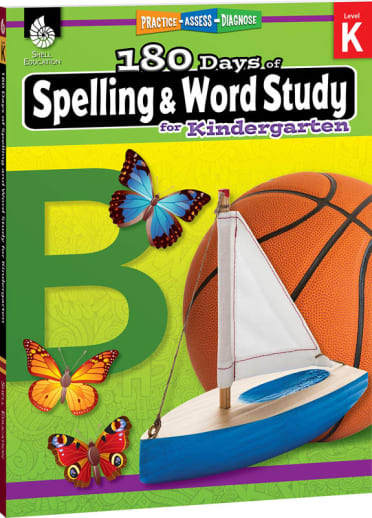Provide kindergarten students with 180 days of daily practice to build their knowledge of spelling rules, conventions, and patterns. Students gain regular practice with word study through these quick, diagnostic-based activities. This grade K spelling workbook features worksheets that are fun, engaging, and challenging for students. Ideal for after school, intervention, or homework, the word lists and activities are based on 10 years of classroom-tested experience. Activities include:
- Picture match
- Read, match, write
- Change a letter and letter search
- Rhyming words and tapping sounds
- Color and trace and color and search
- First sound, middle sound, and last sound
With this easy-to-use resource, teachers can easily add daily word study to their literacy block and help students boost their spelling and word study skills in a hurry!
Digital resources include assessment analysis tools.

